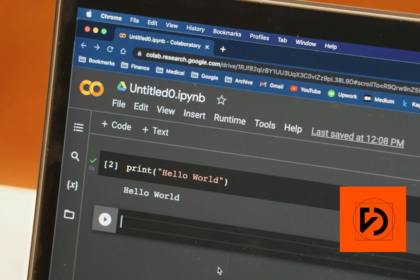Symfony vs Laravel: Which PHP Framework to Choose? A Comparison of Key Differences
Choosing the right PHP framework is one of the most crucial steps in the process of developing web applications. For many developers and companies facing this decision, the most frequently considered options are Symfony and Laravel. Both frameworks are open source, offer a rich set of features, and support various platforms, but they differ in many ways. In this article, we will take a close look at how Symfony and Laravel can impact your projects and which one might be the better choice for your business needs.
Symfony and Laravel are two powerful PHP frameworks that have gained recognition among developers worldwide. Each has its unique characteristics that make it more suitable for a specific type of project. Symfony, being the older of the two, is known for its flexibility and customizability, making it an ideal solution for complex business applications. Laravel, on the other hand, is a newer player in the market but has quickly gained popularity due to its simplicity and ease of use, making it an excellent choice for smaller projects.
In this article, we will thoroughly discuss the differences between Symfony and Laravel, analyze the similarities, and present the pros and cons of each framework. Our goal is to provide you with a complete picture that will help you make an informed decision when choosing a PHP framework for your next web project.
Symfony and Laravel: Similarities
Symfony and Laravel share many common features that make them popular choices among PHP developers. First and foremost, both frameworks are open source, meaning they are free and have strong community support. This gives you access to numerous plugins, libraries, and resources that can significantly speed up the development process.
Both frameworks run on PHP, making them compatible with a wide range of servers and hosting services. Additionally, Symfony and Laravel support cross-platform development, meaning you can create applications that will run on various operating systems, such as Linux, Windows, or macOS. This is crucial if you plan for your application to be available to a broad audience.
In terms of databases, Symfony and Laravel provide efficient support for popular database management systems like MySQL, PostgreSQL, SQLite, and SQL Server. This allows you to easily integrate your application with existing database systems or choose a solution that best fits your project’s needs.
Symfony vs Laravel: Key Differences
While Symfony and Laravel share many similarities, they differ in several ways that can influence your choice depending on your project’s specifics. Symfony is a highly flexible framework that allows advanced configuration and customization to meet specific needs. For this reason, it is often chosen for large, complex corporate applications where custom solutions and long-term development are required.
Laravel, on the other hand, focuses on simplicity and quick deployment, making it the ideal choice for smaller projects where speed and ease of use are critical. Its modern syntax and numerous built-in features, such as Artisan (a powerful command-line tool) or Eloquent (an ORM for databases), make programming more intuitive and enjoyable, especially for less experienced developers.
Another key difference is the approach to automation. Laravel offers high automation of many aspects of application development, which can significantly speed up the project’s progress. Symfony, while also providing automation tools, often requires more manual configuration, which, on one hand, extends the deployment time but, on the other hand, gives greater control over the final product.
Symfony: The Ideal Choice for Large Business Applications
Symfony is the preferred choice for large, complex projects that require advanced configuration and long-term support. Thanks to its modular architecture, Symfony allows for easy addition and modification of functionalities as the project evolves. This is especially important for applications that need to be scaled and developed over a longer period of time.
One of Symfony’s main advantages is its ability to integrate with other popular technologies and programming languages. This makes it the perfect framework for projects that need to work with various systems and platforms. Additionally, Symfony offers a wide range of testing tools, which increases the application’s reliability and minimizes the risk of errors in the production environment.
While Symfony’s configuration may be more time-consuming and costly, this investment pays off in the form of higher code quality, greater stability, and the potential for future application development. Therefore, Symfony is often chosen by large companies and corporations that require a reliable and scalable solution.
Laravel: A Simple and Fast Framework for Smaller Projects
Laravel is a framework that has gained popularity due to its simplicity and intuitive operation. It is an ideal tool for developers who need to quickly deploy an application and do not have time for complex configuration. Laravel offers a rich set of built-in features that allow for the rapid creation of prototypes and full web applications.
One of Laravel’s biggest strengths is its developer-friendliness. With modern PHP features such as closures, namespaces, and composer, Laravel allows for concise and readable code, making it easier to maintain and develop. Additionally, Laravel has extensive documentation and an active community, making it much easier to solve problems encountered during programming.
Laravel is also an excellent choice for projects that require quick deployment and have a limited budget. With high automation of processes such as session management, authentication, and error handling, Laravel saves time and resources, which is crucial for small businesses and startups.
Choosing a PHP Framework: Symfony or Laravel?
The choice between Symfony and Laravel depends primarily on the specifics of your project and business needs. If you are planning to create a large, complex application that will be developed over many years, Symfony may be a better choice due to its flexibility and integration capabilities with other technologies. On the other hand, if your goal is to quickly deploy a smaller application with a limited budget, Laravel offers everything you need to achieve this goal in a short time.
The final decision should be based on an analysis of your project’s needs, available resources, and the amount of time you are willing to devote to its implementation. At Da Vinci Studio, we have experience working with both frameworks and are happy to help you make the right choice that best meets your business objectives.
It is also worth considering the development and support of both frameworks. Both Symfony and Laravel are actively developed and supported by their communities, ensuring their relevance and access to new features and tools. This ensures that regardless of the chosen framework, your project will be able to take advantage of the latest solutions and technologies.
Symfony and Laravel: Final Thoughts
Symfony and Laravel are two leading PHP frameworks that differ in their approach to web application development. Symfony is more flexible and customizable, making it the ideal choice for large, complex projects. Laravel, on the other hand, offers simplicity and quick deployment, which is crucial for smaller applications where time and ease of use are essential.
In conclusion, the choice of a PHP framework should depend on your project’s specifics, available resources, and long-term plans for the application. At Da Vinci Studio, we have experience working with both Symfony and Laravel, allowing us to tailor the solution to the individual needs of our clients.
If you are unsure which framework is the best for your project, feel free to contact our team. We will be happy to advise you and help you choose the best technology to achieve your business goals.














